For the latest news and progress on the GELA project, click on the news items below.
The GELA project team hosted an Evidence-to-Decision Guideline Panel Simulation workshop for the South African Guideline Development Group members in Cape Town. This workshop was a simulation of a clinical guidelines meeting and required participants to role-play.
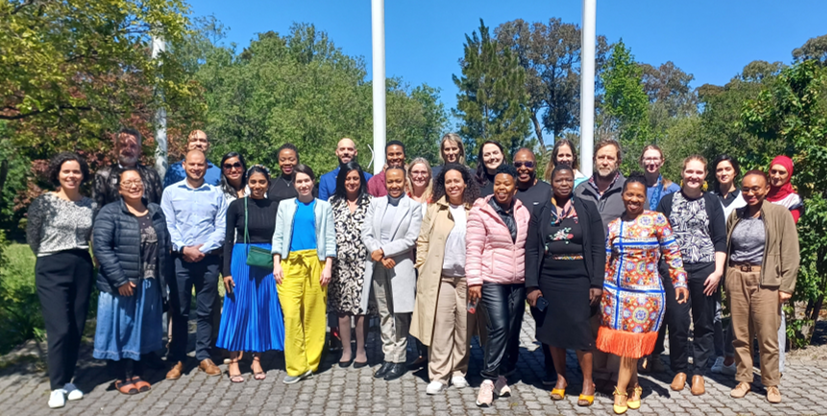
The workshop was facilitated by Michael McCaul and Tamara Kredo. The workshop covered five key learning objectives which included: Discussing guideline panel composition, roles, managing conflicts of interest and also the key factors determining overall quality of evidence in a GRADE Evidence Profile.
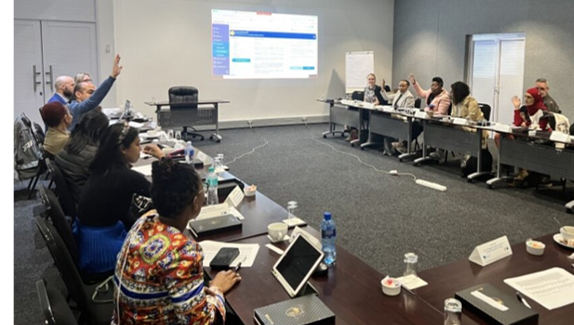
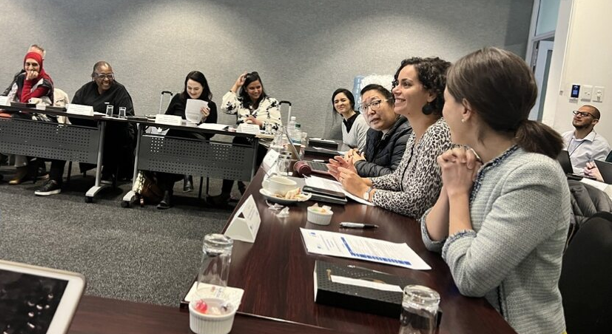
GELA team members from South Africa, Malawi and Nigeria met with MClinEpi students to explore research topics and ideas
The Global Evidence, Local Adaption ( GELA) project in South Africa, in conjunction with its member countries Malawi and Nigeria, organised a one-day hybrid workshop at Stellenbosch University's Tygerberg campus, for its team members, including postdoctoral and four MClinEpi students. The aim of the workshop was to provide students with an overview of GELA, an overview of the requirements for the MClinEpi research projects, and to discuss potential research projects for the students.
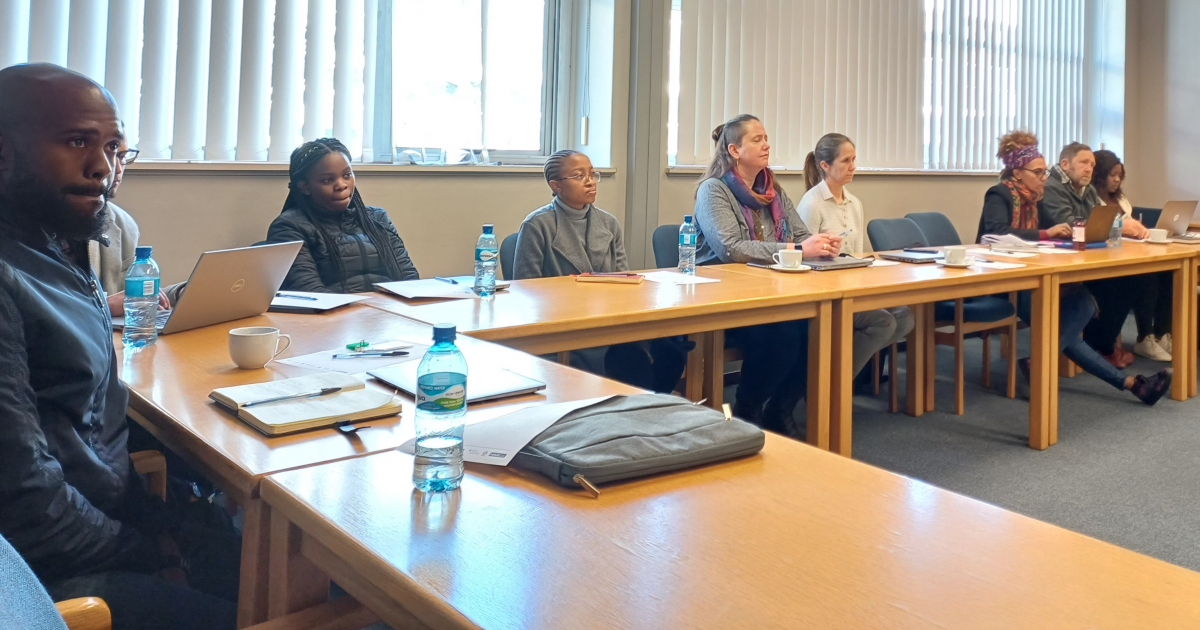
Opening the gathering, Tamara Kredo gave an overview of the three-year GELA project and informed students and team members that the GELA findings would enhance newborn and child-health guideline development in South Africa, Malawi and Nigeria. Kredo asked: ”How do we improve guidelines development in the region and build on great guidelines work?” She said with GELA, the team is trying to take simpler approaches to guideline development, and the focus is on capacity building. She highlighted that "It's also about building networks and partnerships between researchers and policymakers."
Stellenbosch University’s Tonya Esterhuizen gave students an overview of the requirements for an MClinEpi research project. She also explained the research assignment: addressing a specific clinical research problem, which can include systematic reviews and systematic reviews of interventions. She also shared a list of tips, including choosing a topic that is of interest to the student, choosing a supervisory team to provide appropriate expertise, setting up an MOU, and adhering to deadlines by setting up timelines and assignment check-in sessions.
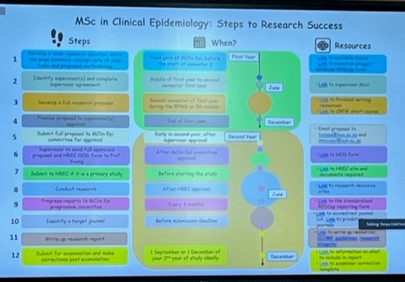
Michael McCaul shared additional basic tips, which included developing the concept note, the rationale of the project, and working out a timeline for the student's specific projects. He advised students that they should consider having two supervisors – one for content and one for methodological guidance to help with complementary supervision. He said this would help students navigate the university, and to have a team that supports them in this journey.
Work package overview and topic ideas
The GELA leads also provided the students with an overview of the six work packages and many topic suggestions. Work Package 1 Lead, Solange Durão, suggested several potential research questions for students, including a scoping review of global discharge checklists and the Health Department's scoping review of guidelines for the diagnosis and management of cerebral palsy.
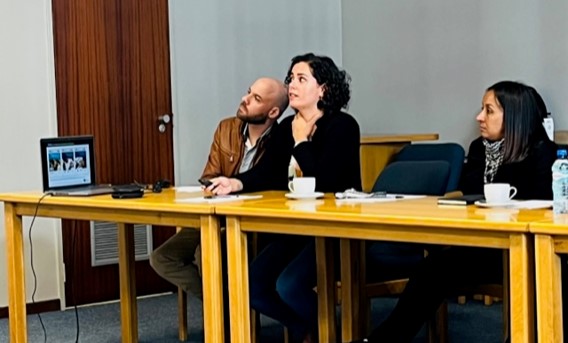
Celeste Naude, lead for Work Package 2, presented potential research topics identified after a brainstorming session with colleagues in Nigeria, Malawi and South Africa, which included: quantifying the time, cost and minimum skill set; human resources; and, resources required for effective community-based strengthening for promoting breastfeeding in Malawi.
Ameer Hohlfeld outlined the Work Package 3 objectives and indicated that this work is still in the infancy stage as the project evolves. At the moment, the team is strategising and aims to convene country-level guideline groups.
Work Packages 4 and 6 were presented by Bey-Marrie Schmidt who explained that Integrated Knowledge Translation (IKT) is about getting the right information to the right people in the right format at the right time. Potential research questions include identifying and synthesising different approaches for engaging patients/public representatives in clinical-practice guideline processes.
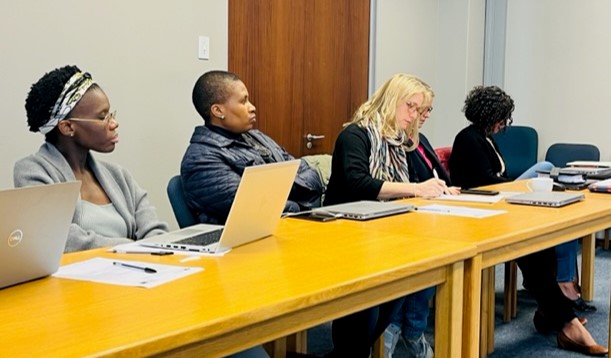
Anke Rohwer, the lead on Work Package 5, outlined that for this work package it's all about learning, with the key objective being to build capacity to use evidence. The target audience includes GELA researchers and students. Several bursaries for postdoctoral and MSc students have been disbursed and this team will also evaluate the learning within the GELA research team.
Work package 6 lead Sara Cooper gave an overview of the work that has been done to monitor and evaluate the progress of the GELA project.
Denise Sproul, a final-year MSc Clinical Epidemiology student at the University of Stellenbosch, presented her research to GELA team members. Sproul is a qualified specialist in Obstetrics and Gynaecology, and her research is looking at assessing the prevalence of family planning among postpartum women at Tygerberg Hospital.
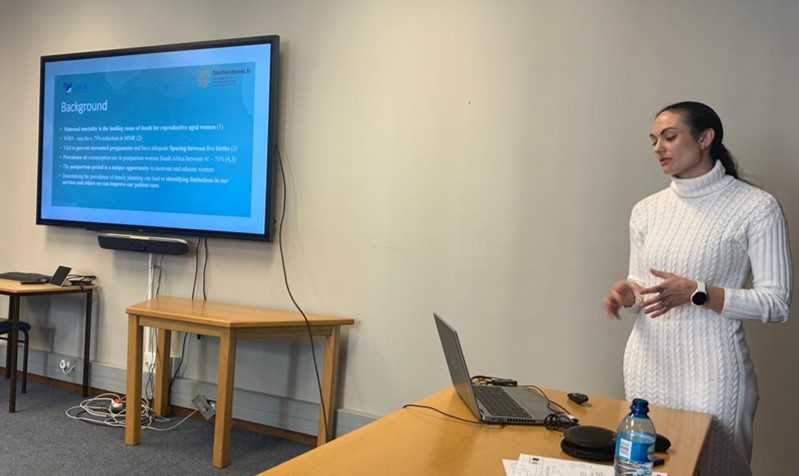
In her closing remarks, Anke Rohwer said it was very useful to hear from everyone. It was also important to discuss the interesting GELA work packages and different topics that could be explored by the students. She admitted that it may have been overwhelming for students, but it is important to think about whether there is a topic that stands out that students would like to take forward as a research project. Rohwer said, "It's important to engage with GELA members, get a conversation going, start discussing interests with people, and then take it further."
She indicated that this will be helpful when the students draft their concept notes and also to look for suitable supervisors.
GELA partner, MAGIC recently hosted South Africa´s ambassador to Norway, Delores Kotze, in Oslo. In the meeting, MAGIC shared its vision of building a digital and trustworthy evidence ecosystem and presented ongoing collaborations with South Africa. The Ambassador provided perspectives and suggestions on how to engage with policymakers and stakeholders within the health and education sectors in South Africa to enable skills transfer and the uptake of contextualised and evidence-based care.
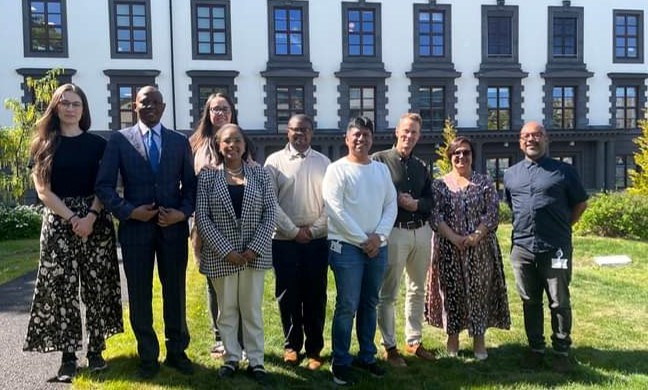
Per Olav Vandvik, CEO of MAGIC, shared the background of MAGIC and described the challenge of making clinical practice guidelines trustworthy, accessible, and useful to policymakers, healthcare providers, patients, and caregivers. He showcased how MAGICapp has been used by organisations across the world to drive more rapid guideline development and create user-friendly dissemination formats. He also briefly described two ongoing MAGIC collaborations with South Africa, the GELA and MARC-SE project, which both focus on the adaptation of guideline recommendations to the unique local contexts in African countries.
Tandekile Lubelwana Hafver, Senior Researcher at MAGIC, gave a presentation on the objectives and priority topics in GELA. Tamara Kredo, the GELA Principal Investigator from the South African Medical Research Council (SAMRC), participated in the meeting online and provided additional motivation and visions for the GELA project.
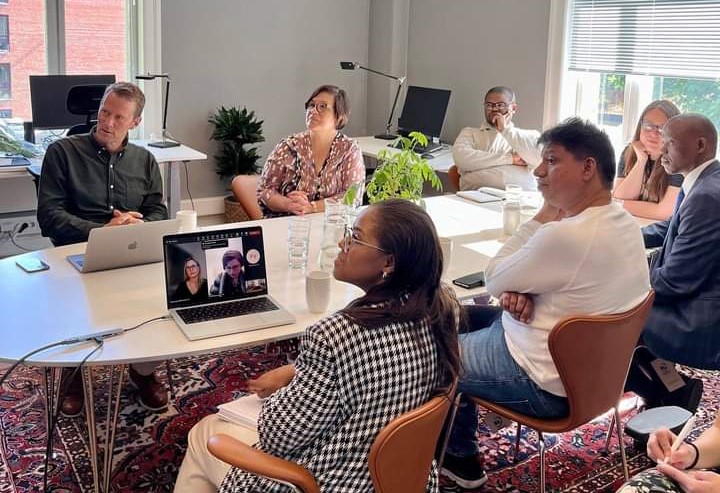
Ambassador Kotze was eager to understand the MAGICapp and the guideline development process and stressed the importance of contextual evidence to inform healthcare in Africa. She also emphasised the role of education and capacity building as drivers of development. In the discussions, the ambassador provided useful input on how to engage with stakeholders in South Africa and suggested several possible partnerships to explore.

The project conducted its first annual meeting in Malawi which was held at Sunbird Capital Hotel in Lilongwe from the 24-26 January 2023. The meeting was officially launched by the Chief of Health Services Dr. Queen Dube from the Malawi Ministry of Health (MOH). In her speech, she stressed the critical importance of the project to go beyond adaptation of the child health guidelines. She further indicated that the project should work in support of attaining the Malawi Sustainable Development Goals (SDGs).
The meeting attracted participants from the participating countries including: the management team, work package leads, project support teams, research team members, policymakers in Malawi as well as the GELA researchers. The meeting was organized by GELA project Malawi in conjunction with South African Medical Research Council. All GELA Malawi staff took part in the organization of the meeting. Overall, it was a productive and successful meeting.
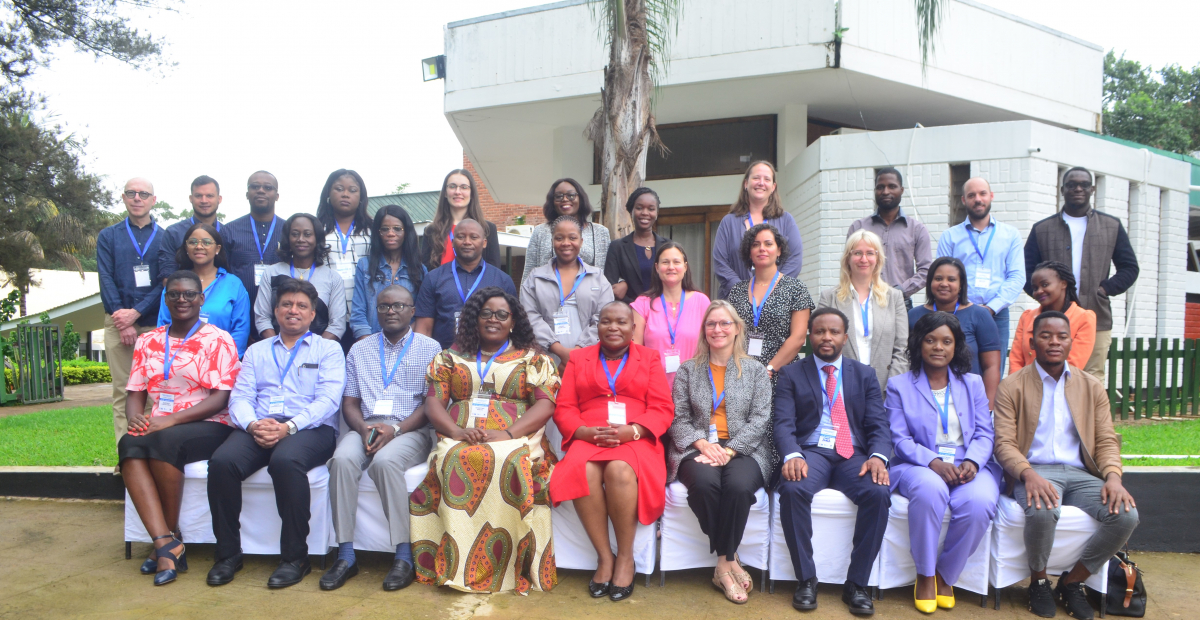
In a nutshell, the annual meeting achieved the following objectives: 1) reviewed the year one progress and planning milestone and deliverables; 2) conducted working sessions for work packages to advance planning, reporting or write up of outputs; 3) conducted management team side meetings; 4) led an In-house training on specific activities relevant for the year ahead (e.g. MAGICapp orientation and Qualitative Evidence Synthesis QES); 5) networked and linked with each other; 6) engaged stakeholders (e.g. policymakers, steering group members and guideline development panel in Malawi and; 7) trained Malawian stakeholders in guideline simulation.
|
|
|
GELA team, led by Tamara Kredo of the Health Systems Research Unit at the South African Medical Research Council, eventually met with key members of the People’s Health Movement (PHM), including PHM coordinator Tinashe Njani and PMH steering committee member Melanie Altstein. The aim of the meeting was to raise awareness and to strengthen the partnership between GELA and PHM and explore future collaborations.
PHM promotes local participation
The objectives of PHM include promoting the participation of people and organisations in the formulation, implementation, and evaluation of all health and social policies and programmes; and, to promote health along with equity and sustainable development as top priorities in local, national, and international policymaking. Furthermore, it encourages people to develop their own solutions to local health problems. In South Africa, PHM is a network of organisations, health researchers and activists.
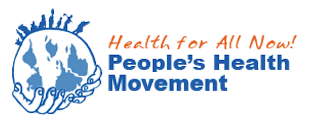
Kredo explained the background of how GELA came about and the engagement with PHM’s Louis Reynolds to gain support for the project to ensure that there are "credible and accountable ways of setting the priorities of stakeholders in South Africa, Malawi and Nigeria".
Diverse GELA guidelines groups
The team also outlined how GELA teams are always engaged on issues and asking themselves, "Do we have the right people around the table? For instance, do we have nurses, parents and caregivers around the table as we work on guideline development?" It was emphasized that GELA certainly does not have all the answers but wants to ensure that different people in the three countries engage with the GELA processes.
PHM members suggested that focus groups with community health workers would be a good resource and committed to getting involved in identifying various community health workers group. The GELA team also raised the issue of whether guideline development and having a community health worker on the panel would be helpful and of interest. PHM members agreed that this would be good and that they would support it, as having a health worker on a panel would add insights on the challenges they experience on the ground.
The way forward: Future GELA/PHM partnership
GELA and PHM agreed to "engage and consult with community health workers (CHWs) to create information packs on some of the guideline topics (for instance, discharge support for premature infants (preemies) in the community)".
Members also agreed to check if and when to involve CHWs with guideline activities, for example, to see if the proposed research seems sensible or feasible.
PHM member Louis Reynolds, who is a member of the GELA international steering committee, welcomed the partnership and said it was important to make "guidelines relevant to community settings in a broader context that is ever-changing." He said that caring for preemies is a great way to start, and that it will almost certainly lead to impactful engagement.
The GELA project team in Nigeria hosted a Guideline Panel Simulation workshop for the Nigerian Guideline Development Group in Abuja on 31 October 2023.
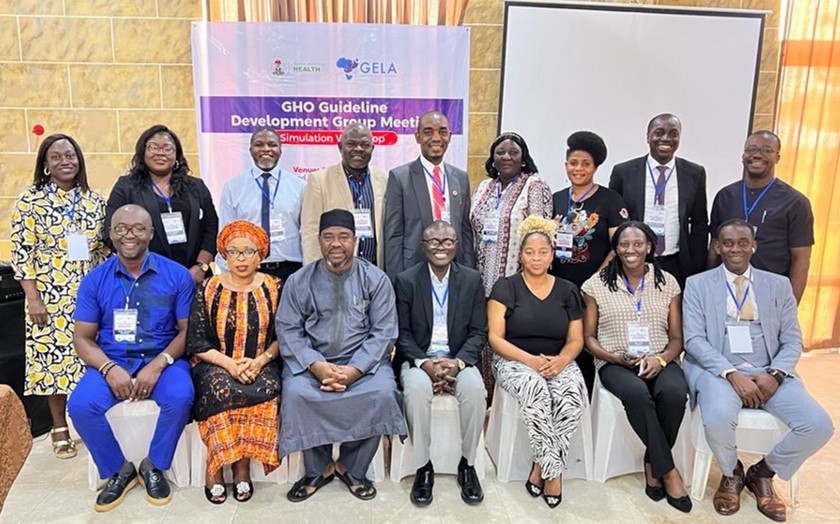
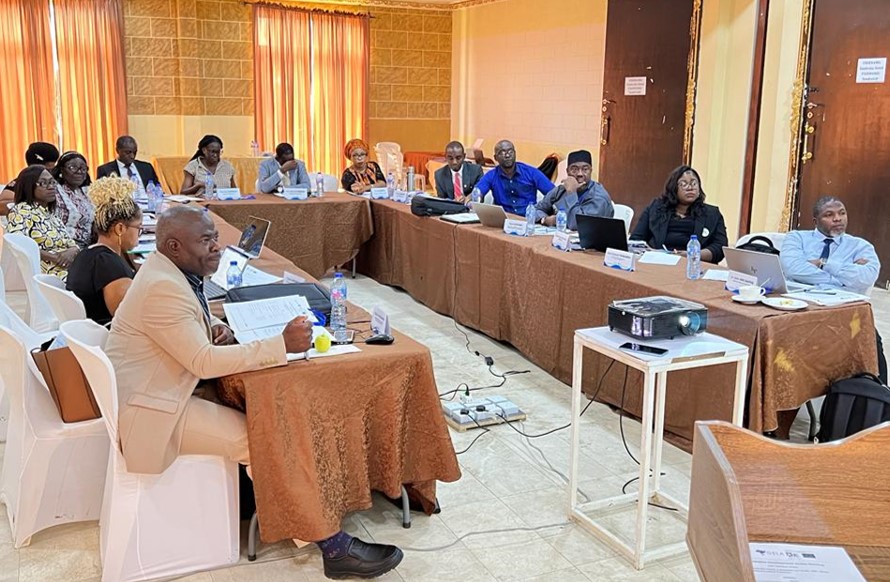
In November, GELA joined the global community by attending the 11th EDCTP Forum in Paris, France. The theme for the 2023 forum was “Partnering for Global Health Research Innovation and Impact in Africa: Celebrating EDCTP: Two Decades and Beyond." Nyanyiwe Mbeye was in Paris representing the GELA project. The European and Developing Countries Clinical Trials Partnership (EDCTP) is a public-private partnership between countries in Europe and sub-Saharan Africa. GELA is one of the EDCTP grant recipients.
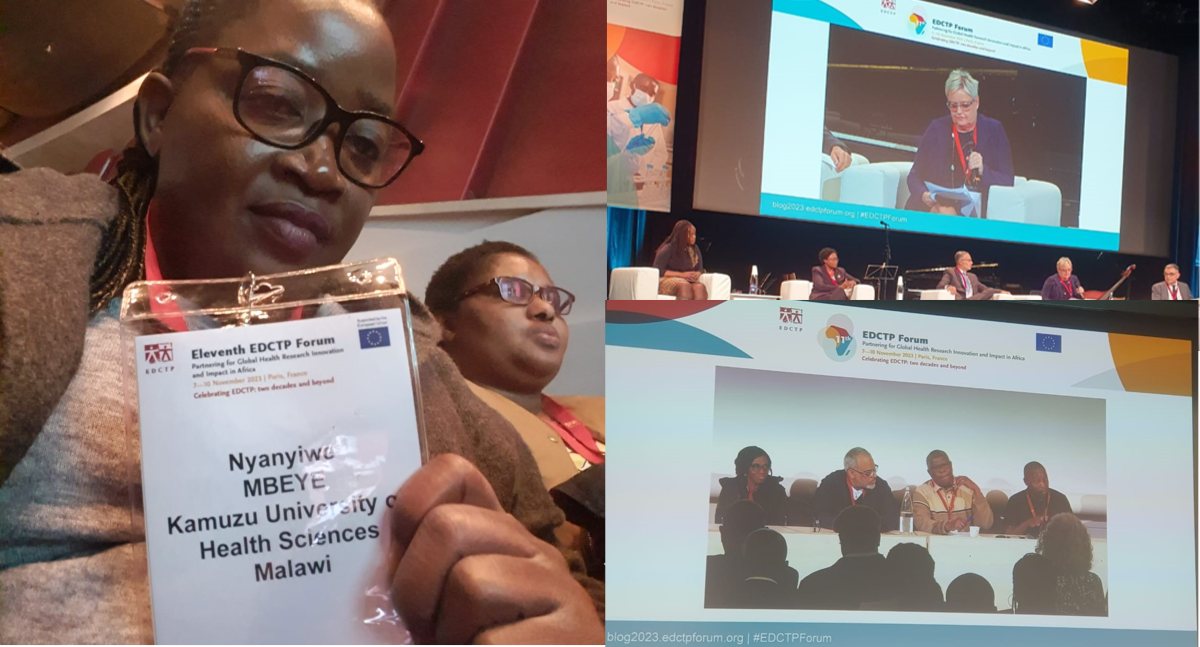
On 17th of November every year, the world celebrates World Prematurity Day, this year we rallied under the theme 'Small Actions, BIG IMPACT: Immediate Skin-to-Skin Care for Every Baby, Everywhere.'

Kamuzu Central Hospital in Malawi, one of GELA's stakeholders hosted a special event honouring health workers and mothers' tireless efforts in providing newborn care, particularly to low-birth weight and preterm babies. Malawi has one of the highest rates of preterm births.
The day was celebrated with a big walk around the hospital with people wearing purple T-shirts, who were chanting and dancing.
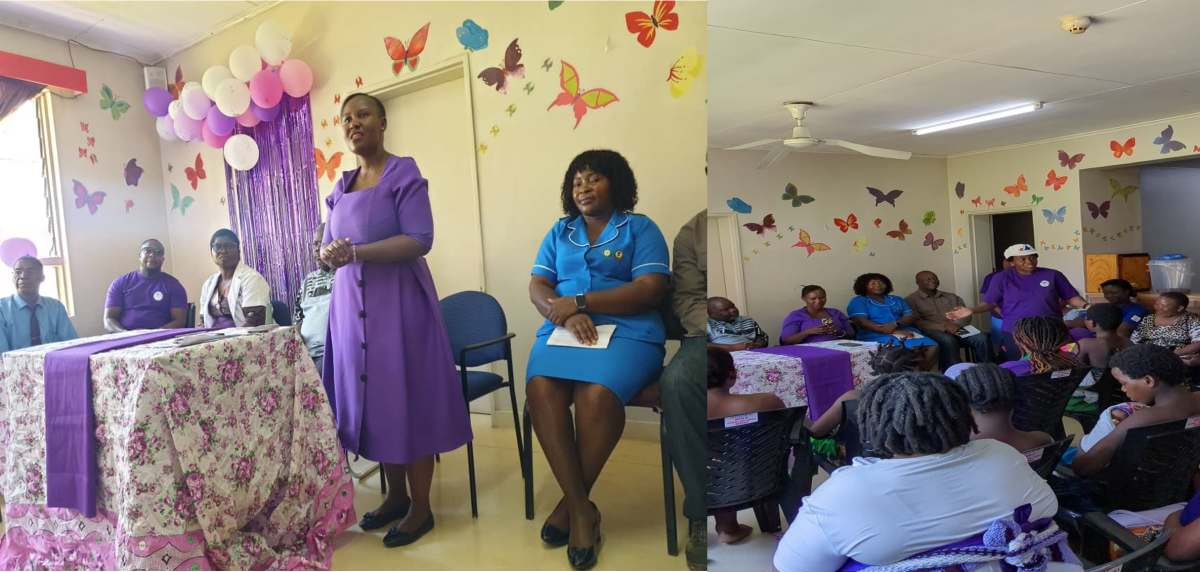
In a concerted effort, the Ministry of Health together with GELA is developing guidelines for newborn and child health in Malawi.
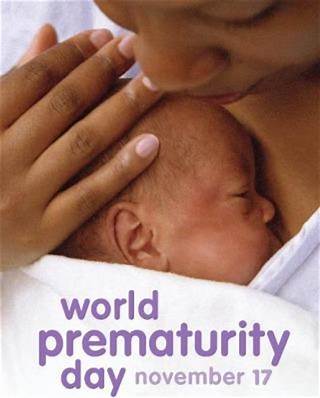 According to the World Health Organization (WHO), 1 in 10 of all babies are born preterm—before 37 weeks of pregnancy. World Prematurity Day on November 17 is a day dedicated to raising awareness about the issue. The WHO says complications relating to preterm birth are now the world's leading cause of infant deaths, and in order to address these risks, women and babies need quality healthcare before, during, and after birth.
According to the World Health Organization (WHO), 1 in 10 of all babies are born preterm—before 37 weeks of pregnancy. World Prematurity Day on November 17 is a day dedicated to raising awareness about the issue. The WHO says complications relating to preterm birth are now the world's leading cause of infant deaths, and in order to address these risks, women and babies need quality healthcare before, during, and after birth.
The theme for this year's #WorldPrematurityDay was "Small Actions, BIG IMPACT": Home visits can have important impacts on infant mortality and morbidity, along with neurodevelopment and mother-infant interaction.
SAMRC and the GELA project, in collaboration with guideline development group members, including the Department of Health and several CSOs, recently met to make recommendations on home visits and peer-support interventions to improve the health outcomes of preterm and low-birthweight infants.
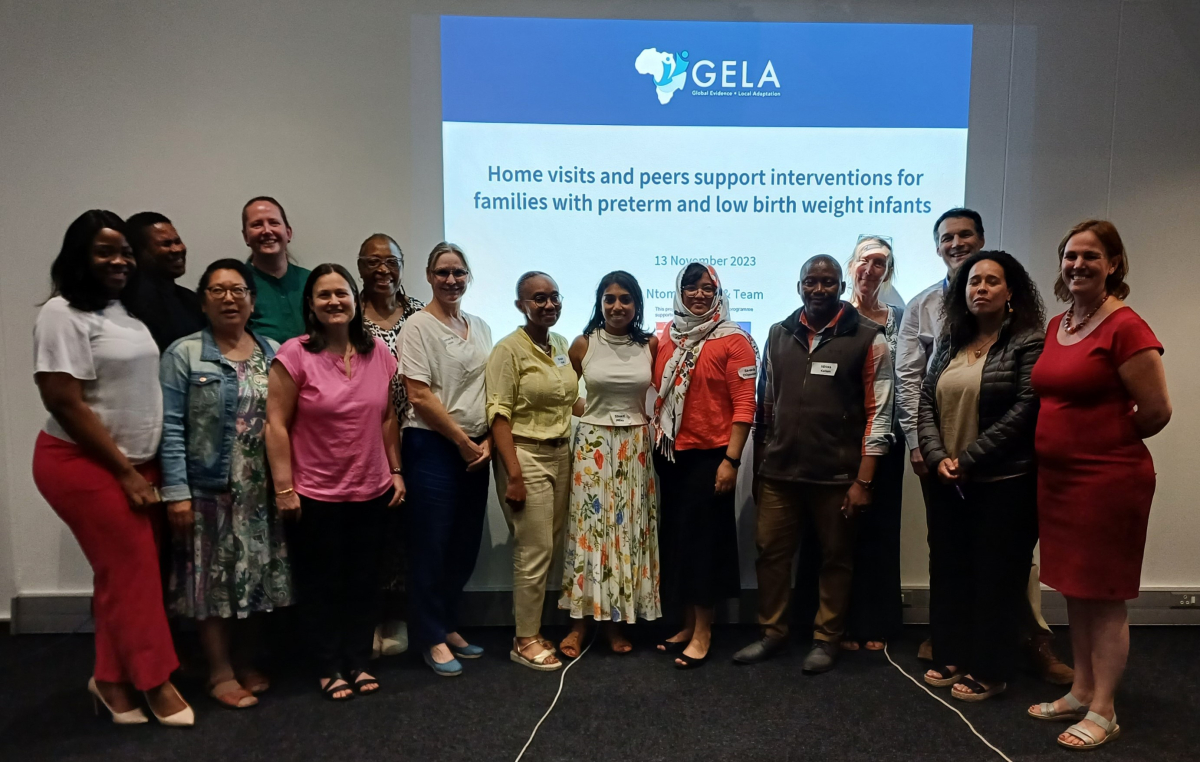
A systematic review of qualitative research in SA found mothers appreciate home visits for the knowledge and support provided. However, the review found community healthcare workers experience many barriers when conducting home visits, such as the emotional toll of maintaining boundaries with mothers, inadequate training, supervision, and support, and often poor salaries and non-permanent contracts.
Home visits are important; however, the components making up the home visits (e.g., the intensity of visits, training, and supervision of community health workers, amongst other components) need to be considered when planning for implementation.
The review also found community healthcare workers (CHWs) experience many barriers when conducting home visits, such as the emotional toll of maintaining boundaries with mothers and inadequate training, supervision, and support. There is a need for increased political will and resources, which are essential for addressing the challenges and ensuring effective implementation of home visits for families with preterm and LBW (low birth weight) infants in the country.
Lastly, context-specific economic analysis shows that to improve the performance of community health worker programmes, sufficient resources must be allocated for training and supervision.

